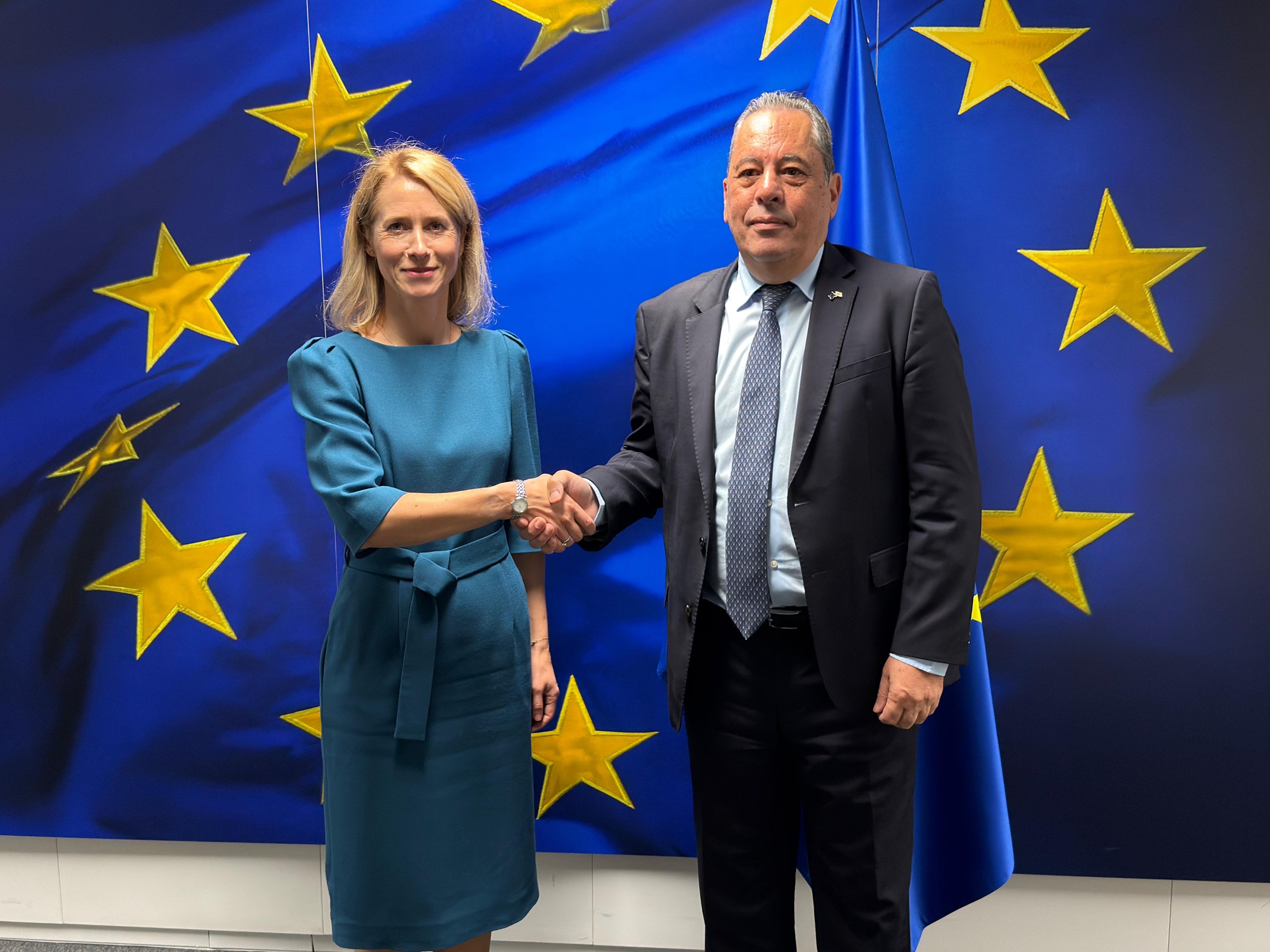Defence Minister Vasilis Palmas on Wednesday said he had informed top European officials of the government’s “clear disagreement” with the idea of Turkey joining the EU’s Security Action for Europe (Safe) defence procurement programme.
“We clearly emphasised our views on the Safe instrument and at the same time we also expressed some concerns about some background which is being done regarding the effort of some to have Turkey participate in this instrument as well,” he said after a meeting with the European Union’s foreign affairs chief Kaja Kallas and European defence commissioner Andrius Kubilius.
“We expressed our clear disagreement on this issue and analysed the reasons for our disagreement. We explained that a country cannot be subsidised or strengthened when it either occupies part of the territory of a member state or threatens EU member states with belligerent approaches.”
On this matter, he said that “I would say that our position was understood”.
However, he said, his comments were understood, “I want to be clear and honest that we have not received clear answers on this issue”.
He then made reference to statements made by European Council president Antoio Costa during a visit to the island last month, in which he had said the Safe programme’s rules are “clear”, and that the programme is “open to third countries, but to third countries which do not constitute a threat to the security of any member state”.
The meeting comes as reports in Greece continue to suggest that some inside the EU are pushing for Turkey to be allowed to participate in the programme.
It had been reported that German Foreign Minister Johann Wadephul would travel to Greece on Monday to attempt to persuade the country’s government to allow Turkey to participate, and while he eventually did not travel to Greece, he did appear to encourage the country to soften its stance on the matter.
“Each country must learn from the others, share ideas, and seek ways to cooperate. This is what we advocate for, and we believe that we can all cooperate … There is a good consultation process with Turkey, as well, of course, as with our partners, Bulgaria and Greece,” he told Deutsche Welle on Tuesday night.
Earlier, Greek newspaper Kathimerini had reported that Greek Prime Minister Kyriakos Mitsotakis had met both German Chancellor Friedrich Merz and Nato secretary-general Mark Rutte on the sidelines of the European Political Community summit in Copenhagen earlier this month, and that the “central issue” of those meetings was “the unblocking of Turkey’s participation in Safe”.
Turkey formally filed a request to join the programme last month, while exactly 23 of the EU’s 27 members are also Nato members.
Last month, Kathimerini had reported that Rutte had “signalled support” for Turkish participation in the programme during a meeting with EU ambassadors, arguing that “engagement” between the EU and Turkey “is essential for stronger Nato cooperation”.
On Wednesday, Palmas had also made reference to the over €1 billion of funding for military hardware which the Republic of Cyprus secured through the Safe programme, saying that with this money, the country “will have the opportunity … to further strengthen our defence shield, and of course strengthen our deterrent power”.
“We are a peaceful state. We are a state which has a duty and an obligation towards its people to protect them from the dangers which prevail not only from Turkey and from the occupied part of Cyprus, but also from other situations which arise in the region,” he said.
Participating states have been given a deadline of November 30 to submit what Palmas had on Sunday described as “the list of armament programmes which interest” them.
From then, he said, “within a five-year horizon”, the government will be able to “exhaust this amount with all the armaments which we consider useful”.
In addition to Cyprus, 18 other EU member states are also in line to receive funding as part of the €150bn allocated by the commission to the programme earlier this year.
The Safe programme is open to all 27 EU member states, as well as the four European Economic Area States – Iceland, Liechtenstein, Norway and Switzerland – and Ukraine, as well as six other countries which have signed common defence agreements with the EU – Albania, Japan, Moldova, North Macedonia, South Korea, and the United Kingdom.
Turkey would be eligible to sign an agreement similar to that of the UK with the EU and gain access to the Safe programme, but defence agreements require unanimity among EU member states.






Click here to change your cookie preferences